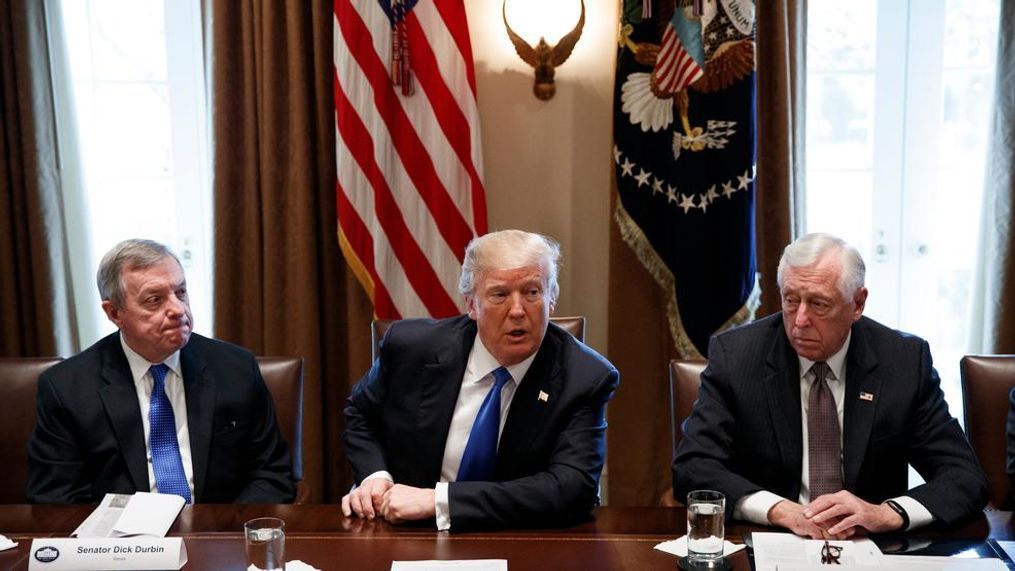Trump endorses return of earmarks as House GOP weighs change

WASHINGTON (AP) — President Donald Trump has waded into a brewing controversy in the House and endorsed the return of so-called earmarks — pet projects and spending items added to appropriations bills on behalf of individual lawmakers.
"Our system lends itself to not getting things done, and I hear so much about earmarks — the old earmark system — how there was a great friendliness when you had earmarks," Trump told a group of lawmakers at a Jan. 9 White House meeting on immigration. "But of course, they had other problems with earmarks. But maybe all of you should start thinking about going back to a form of earmarks."
Trump's remarks came as House Republicans are weighing a change to their rules to permit a limited return of earmarks, though with a new set of restrictions and reforms to limit the potential for abuse.
Earmarks send taxpayer dollars to projects in lawmakers' districts outside the competitive process required for other federal spending. They can include road and bridge projects, community development grants, and federal contractors that produce
House Republicans banned earmarks when they retook the House in 2011. Top Republicans, led by then-Speaker John Boehner, R-Ohio, argued that they corrupted lawmakers and caused them to support bad legislation simply to shovel taxpayer money back home. It was common, for instance, to solicit campaign donations from those who received the earmarks, as well as the lobbyists who advocated for them.
Former Rep. Randy "Duke" Cunningham, R-Calif., took bribes in exchange for earmarks and spent seven years in prison.
There's widespread support among lawmakers to revive earmarks, though with safeguards to avoid a repeat of the problems of the past.
Speaker Paul Ryan, R-Wis., did not seem sympathetic when asked about earmarks Tuesday. Asked if earmarks are making a comeback, Ryan said, "Conversations are having a comeback."
Ryan was central to squelching an effort a year ago to revive earmarks. Groups opposing earmarks swiftly attacked the idea of their return.
"Bringing back earmarks is the antithesis of draining the swamp," said Club for Growth President David McIntosh, whose group helps finance campaigns of staunch conservatives. "Earmarks will only benefit the special interests that grow government at the expense of working men and women."
Since the ban was imposed, however, it has been more difficult to pass the annual appropriations bills, which has recently been done only in the form of long overdue, catch-all spending bills known as "omnibus" measures.
"You should do it, and I'm there with you, because this system really lends itself to not getting along," Trump said. "It lends itself to hostility and anger."
Veteran Rep. Robert Aderholt, R-Ala., said he believes the earmark ban "is one of those things that's held up the appropriations process because people have not had a vested interest in voting for spending bills." As for the potential return of earmarks, Aderholt said, "as long as it's done on a fair and transparent basis, then I think we need to seriously consider it."
The Rules Committee is holding hearings next week on the topic.
"We are not moving backwards and I would not (make) a recommendation for us to move back to almost any part of a system that I saw that existed before 2011," Rules Committee Chairman Pete Sessions, R-Texas, told reporters.
Trump noted at the White House that Lindsey Graham, R-S.C., was nodding along when Trump brought up earmarks.
Graham immediately chimed in: "Starting with the Port of Charleston. Absolutely."
